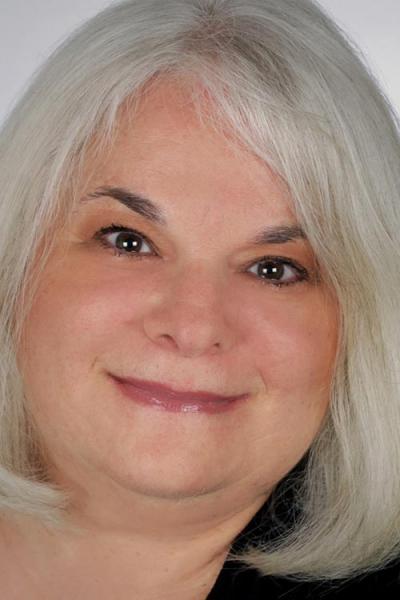

 The ICANN Registrar Stakeholder Group (RrSG) is one of several stakeholder groups within the ICANN community and is the representative body of ICANN accredited domain name registrars. It is a diverse and active group that works to ensure the interests of registrars and their customers are effectively advanced. The leadership team (ExCom) consists of five officers who manage the Registrar Stakeholder Group. more
The ICANN Registrar Stakeholder Group (RrSG) is one of several stakeholder groups within the ICANN community and is the representative body of ICANN accredited domain name registrars. It is a diverse and active group that works to ensure the interests of registrars and their customers are effectively advanced. The leadership team (ExCom) consists of five officers who manage the Registrar Stakeholder Group. more
 In the early 2000s, when I began working in the domain name industry, I remember hearing from colleagues about these seemingly elusive ICANN meetings invariably hosted in some pretty incredible places, including Rio de Janeiro, Rome and Cape Town. I remember how some of my colleagues complained about being stuck in windowless conference rooms for hours on end, but secretly thinking that they were probably going to a few meetings, but then actually enjoying a fabulous vacation. more
In the early 2000s, when I began working in the domain name industry, I remember hearing from colleagues about these seemingly elusive ICANN meetings invariably hosted in some pretty incredible places, including Rio de Janeiro, Rome and Cape Town. I remember how some of my colleagues complained about being stuck in windowless conference rooms for hours on end, but secretly thinking that they were probably going to a few meetings, but then actually enjoying a fabulous vacation. more
 The COVID-19 pandemic has led to the rapid migration of the world's workforce and consumer services to virtual spaces, has amplified the Internet governance and policy issues including infrastructure, access, exponential instances of fraud and abuse, global cooperation and data privacy, to name but a few. The need for practical, scalable and efficient solutions has risen dramatically. more
The COVID-19 pandemic has led to the rapid migration of the world's workforce and consumer services to virtual spaces, has amplified the Internet governance and policy issues including infrastructure, access, exponential instances of fraud and abuse, global cooperation and data privacy, to name but a few. The need for practical, scalable and efficient solutions has risen dramatically. more
 If you are interested in speaking at the ICANN 68 DNSSEC Workshop, please send a brief (1-2 sentence) description of your proposed presentation to [email protected] by 29 May 2020. This online workshop will be Monday, 22 June 2020, from 02:00 – 04:30 UTC (10:00 – 12:30 Kuala Lumpur) We are doing something new this time and would like to get a feel for attendance for this virtual meeting. more
If you are interested in speaking at the ICANN 68 DNSSEC Workshop, please send a brief (1-2 sentence) description of your proposed presentation to [email protected] by 29 May 2020. This online workshop will be Monday, 22 June 2020, from 02:00 – 04:30 UTC (10:00 – 12:30 Kuala Lumpur) We are doing something new this time and would like to get a feel for attendance for this virtual meeting. more
In a decision made on Thursday, the ICANN Board said: "withholding consent of the transfer of PIR from the Internet Society (ISOC) to Ethos Capital is reasonable, and the right thing to do," based on various factors that the Board believes will create unacceptable uncertainty for the future of .ORG, the third-largest gTLD registry. more
 While the March report from ICANN's Domain Abuse Activity Reporting system show a general reduction in second-level gTLD domain names identified as being used in phishing, malware distribution, and botnet command and control, it has been widely reported that criminals are taking advantage of the global COVID-19 pandemic by launching malicious online campaigns. There have also been numerous reports of spikes in the use of COVID-19-related domain names for DNS Abuse. more
While the March report from ICANN's Domain Abuse Activity Reporting system show a general reduction in second-level gTLD domain names identified as being used in phishing, malware distribution, and botnet command and control, it has been widely reported that criminals are taking advantage of the global COVID-19 pandemic by launching malicious online campaigns. There have also been numerous reports of spikes in the use of COVID-19-related domain names for DNS Abuse. more
 As the first quarter of 2020 ended, the number of new generic Top-Level Domain (gTLD) domain registrations reached approximately 33.2 million. We expect to see additional growth through 2020 as TLDs such as .GAY will complete their launches before the end of the year. Meetings and conferences in the domain industry in 2020 are in flux but will go on in new formats, new timeframes and new locations. more
As the first quarter of 2020 ended, the number of new generic Top-Level Domain (gTLD) domain registrations reached approximately 33.2 million. We expect to see additional growth through 2020 as TLDs such as .GAY will complete their launches before the end of the year. Meetings and conferences in the domain industry in 2020 are in flux but will go on in new formats, new timeframes and new locations. more
ICANN has delayed the decision for the sale of the .ORG registry, pushing the issue off for another month following a last minute letter from California's attorney. more
 This past meeting of the Internet Corporation for Assigned Names and Numbers (ICANN), ICANN67, was intended to be held in person in Cancun, Mexico, but was actually the first meeting to be held entirely online and virtually. It was a well-managed affair with fewer sessions than the in-person meetings and less opportunity for the community to convene and meet as individuals. The last-minute change from an in-person to a virtual meeting impacted ICANN's ability to provide translation services for the full set of UN-supported languages, Arabic, Chinese, English, French, Russian, and Spanish. more
This past meeting of the Internet Corporation for Assigned Names and Numbers (ICANN), ICANN67, was intended to be held in person in Cancun, Mexico, but was actually the first meeting to be held entirely online and virtually. It was a well-managed affair with fewer sessions than the in-person meetings and less opportunity for the community to convene and meet as individuals. The last-minute change from an in-person to a virtual meeting impacted ICANN's ability to provide translation services for the full set of UN-supported languages, Arabic, Chinese, English, French, Russian, and Spanish. more
The Internet Corporation for Assigned Names and Numbers (ICANN) and Public Interest Registry (PIR) today announced that they have mutually agreed to extend ICANN's time to review PIR's submissions to April 20th. more
 Ethos CEO Erik Brooks and I are grateful to ICANN for hosting this important community dialogue on the future of PIR and .ORG earlier this week, and we listened intently to the questions posed. To echo what John Jeffrey said in his opening remarks, we are very interested in the community's input. We appreciate the openness and candor that was expressed during the Public Forum, and we would like to take this opportunity to recap a few of the overarching themes and questions asked. more
Ethos CEO Erik Brooks and I are grateful to ICANN for hosting this important community dialogue on the future of PIR and .ORG earlier this week, and we listened intently to the questions posed. To echo what John Jeffrey said in his opening remarks, we are very interested in the community's input. We appreciate the openness and candor that was expressed during the Public Forum, and we would like to take this opportunity to recap a few of the overarching themes and questions asked. more
 ICANN is reviewing the Internet Society's proposed sale of Public Interest Registry, the .ORG registry operator, to private equity firm Ethos Capital. ICANN effectively has the power to stop the sale by terminating PIR's Registry Agreement. The Electronic Frontier Foundation, NTEN, Consumer Reports, Americans for Financial Reform and several other organizations joined Monday's Public Forum at ICANN67 to ask questions about how ICANN plans to review the change of control of the .ORG registry... more
ICANN is reviewing the Internet Society's proposed sale of Public Interest Registry, the .ORG registry operator, to private equity firm Ethos Capital. ICANN effectively has the power to stop the sale by terminating PIR's Registry Agreement. The Electronic Frontier Foundation, NTEN, Consumer Reports, Americans for Financial Reform and several other organizations joined Monday's Public Forum at ICANN67 to ask questions about how ICANN plans to review the change of control of the .ORG registry... more
 People are growing increasingly alarmed by recent examples of bad actors abusing proxy services offered by registrars. While proxy services are designed to protect the privacy of legitimate domain name users - they do the opposite when abused by cybercriminals. Responsible Proxy providers play a key role in mitigating abuse. When they don't act responsibly - it's clear they contribute to the problem. more
People are growing increasingly alarmed by recent examples of bad actors abusing proxy services offered by registrars. While proxy services are designed to protect the privacy of legitimate domain name users - they do the opposite when abused by cybercriminals. Responsible Proxy providers play a key role in mitigating abuse. When they don't act responsibly - it's clear they contribute to the problem. more
 Mr. Arif Ali, a lawyer with Dechert who is very familiar with ICANN governance and has represented numerous parties in ICANN related matters, wrote an extraordinarily detailed and comprehensive critique of the LOI and of Amendment 3. Mr. Ali noted that two of ICANN's most important obligations are to operate for the benefit of the Internet community as a whole and to enable competition and open entry in Internet-related markets, and that the proposed price hikes do not support these obligations... more
Mr. Arif Ali, a lawyer with Dechert who is very familiar with ICANN governance and has represented numerous parties in ICANN related matters, wrote an extraordinarily detailed and comprehensive critique of the LOI and of Amendment 3. Mr. Ali noted that two of ICANN's most important obligations are to operate for the benefit of the Internet community as a whole and to enable competition and open entry in Internet-related markets, and that the proposed price hikes do not support these obligations... more
 ICANN's call for Public Comment on Proposed Amendment 3 to the .com Registry Agreement yielded 9,040 public comments during the six-week comment period that ran from January 3, 2020 to February 14, 2020. The public response was amongst the most robust if not the most robust, that ICANN has ever received. To put this in context, the last several Public Comment periods received under 20 comments apiece. more
ICANN's call for Public Comment on Proposed Amendment 3 to the .com Registry Agreement yielded 9,040 public comments during the six-week comment period that ran from January 3, 2020 to February 14, 2020. The public response was amongst the most robust if not the most robust, that ICANN has ever received. To put this in context, the last several Public Comment periods received under 20 comments apiece. more